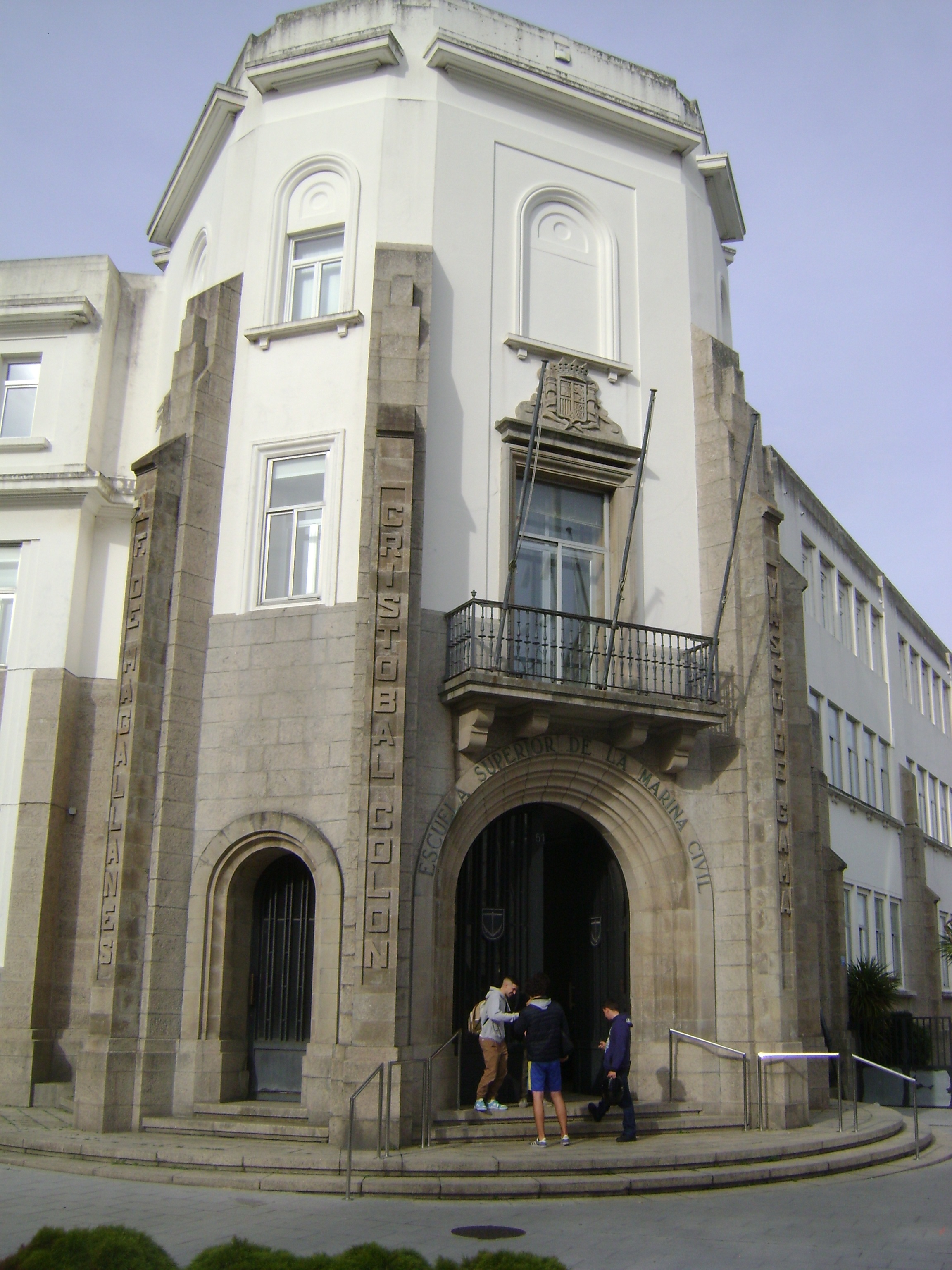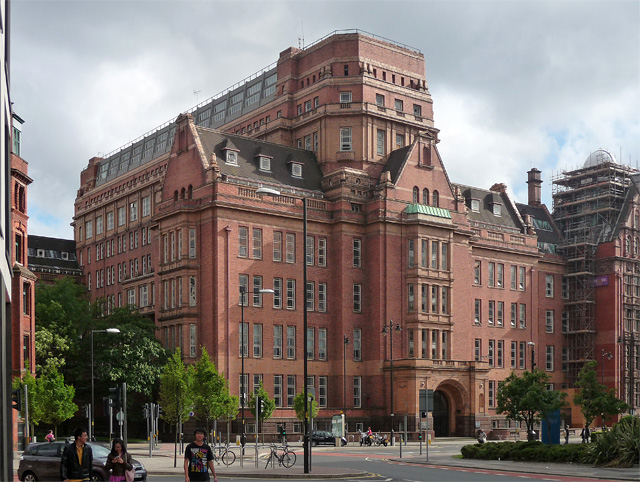|
Verónica Bolón-Canedo
Verónica Bolón-Canedo (born 1984) is a Spanish computer scientist whose research concerns feature selection in machine learning, with applications including medical diagnosis, oil spill detection, and automated educational assessment. She is a professor at the University of A Coruña. Education and career Bolón-Canedo was born in Carballo in 1984. She studied computer science at the nearby University of A Coruña, earning a bachelor's degree in 2009, a master's degree in 2010, and completing her Ph.D. in 2014. After postdoctoral research at the University of Manchester in the UK, she returned to the University of A Coruña as an assistant professor. She later became a full professor there, in the Department of Computer Science and Information Technologies. Books Bolón-Canedo is the author or editor of books including: *''Feature Selection for High-Dimensional Data'' (with Noelia Sánchez-Maroño and Amparo Alonso Betanzos, Springer, 2015) *''Recent Advances in Ensembles f ... [...More Info...] [...Related Items...] OR: [Wikipedia] [Google] [Baidu] |
Feature Selection
In machine learning, feature selection is the process of selecting a subset of relevant Feature (machine learning), features (variables, predictors) for use in model construction. Feature selection techniques are used for several reasons: * simplification of models to make them easier to interpret, * shorter training times, * to avoid the curse of dimensionality, * improve the compatibility of the data with a certain learning model class, * to encode inherent Symmetric space, symmetries present in the input space. The central premise when using feature selection is that data sometimes contains features that are ''redundant'' or ''irrelevant'', and can thus be removed without incurring much loss of information. Redundancy and irrelevance are two distinct notions, since one relevant feature may be redundant in the presence of another relevant feature with which it is strongly correlated. Feature extraction creates new features from functions of the original features, whereas feat ... [...More Info...] [...Related Items...] OR: [Wikipedia] [Google] [Baidu] |
Machine Learning
Machine learning (ML) is a field of study in artificial intelligence concerned with the development and study of Computational statistics, statistical algorithms that can learn from data and generalise to unseen data, and thus perform Task (computing), tasks without explicit Machine code, instructions. Within a subdiscipline in machine learning, advances in the field of deep learning have allowed Neural network (machine learning), neural networks, a class of statistical algorithms, to surpass many previous machine learning approaches in performance. ML finds application in many fields, including natural language processing, computer vision, speech recognition, email filtering, agriculture, and medicine. The application of ML to business problems is known as predictive analytics. Statistics and mathematical optimisation (mathematical programming) methods comprise the foundations of machine learning. Data mining is a related field of study, focusing on exploratory data analysi ... [...More Info...] [...Related Items...] OR: [Wikipedia] [Google] [Baidu] |
University Of A Coruña
The University of A Coruña () is a Spanish public university located in the city of A Coruña, Galicia. Established in 1989, university departments are divided between two primary campuses in A Coruña and nearby Ferrol. The A Coruña campus is spread over three suburbs on the outskirts of A Coruña: Elviña and Zapateira (near the site of the Battle of Elviña) and Oza (near the As Xubias zone). History The first University in Galicia was founded 1495 in University of Santiago de Compostela, and it remained the only university in Galicia until the early 1980s when two university campuses (in A Coruña and Vigo) were formed from the University of Santiago de Compostela. In the early 1960s, the School of Naval and Industrial Engineers of Ferrol was also established as a degree-granting institution by a Ministerial Order. Until 1990 the school was directly dependent on the Ministry of Education in Madrid. In 1990 the school was amalgamated with the University of A Coruña. I ... [...More Info...] [...Related Items...] OR: [Wikipedia] [Google] [Baidu] |
Carballo
Carballo is a municipality in the province of A Coruña, in the autonomous community of Galicia, in northwestern Spain. The town is the thirteenth most populated municipality in the region and it belongs to the comarca of Bergantiños, serving as its capital. The seafood company Calvo is headquartered here. Etymology Carballo is a Galician word that refers to Oak trees, which are the main symbol of the municipality. However, the word ''Carballo'' has many historical variations in spelling, including but not limited to ''Carvallo'', ''Carbello'', ''Caballero'' or ''Carvalho'', likely due to the level of illiteracy during early times. Surnames like Carballo transform in their pronunciation and spelling as they travel across villages, family branches, and countries over the years. In times when literacy was uncommon, names such as Carballo were written down based on their pronunciation, potentially leading to misspellings. Researching these misspellings and alternate spellings ... [...More Info...] [...Related Items...] OR: [Wikipedia] [Google] [Baidu] |
University Of Manchester
The University of Manchester is a public university, public research university in Manchester, England. The main campus is south of Manchester city centre, Manchester City Centre on Wilmslow Road, Oxford Road. The University of Manchester is considered a red brick university, a product of the civic university movement of the late 19th century. The current University of Manchester was formed in 2004 following the merger of the University of Manchester Institute of Science and Technology (UMIST) and the Victoria University of Manchester. This followed a century of the two institutions working closely with one another. Additionally, the university owns and operates major cultural assets such as the Manchester Museum, The Whitworth art gallery, the John Rylands Library, the Tabley House, Tabley House Collection and the Jodrell Bank Observatory – a UNESCO World Heritage Site. The University of Manchester Institute of Science and Technology had its origins in the Manchester Mechan ... [...More Info...] [...Related Items...] OR: [Wikipedia] [Google] [Baidu] |
Amparo Alonso Betanzos
Amparo Alonso-Betanzos (born October 10, 1961) is a Spanish computer scientist and was president of the Spanish Association for Artificial Intelligence (2013-2021). Career She is a professor at University of A Coruña, where she leads the Laboratory for the Investigation and Development of Artificial Intelligence (LIDIA). Originally a chemical engineer, her research now focuses on artificial intelligence Artificial intelligence (AI) is the capability of computer, computational systems to perform tasks typically associated with human intelligence, such as learning, reasoning, problem-solving, perception, and decision-making. It is a field of re ..., specifically its medical applications. Achievements and honours In 1998, she was awarded the L'Oreal-UNESCO Award for Women In Science in Spain. Selected research * Bolón-Canedo, Verónica, Noelia Sánchez-Maroño, and Amparo Alonso-Betanzos. "A review of feature selection methods on synthetic data." ''Knowledge and informati ... [...More Info...] [...Related Items...] OR: [Wikipedia] [Google] [Baidu] |
Spanish Royal Academy Of Sciences
The Spanish Royal Academy of Sciences (Spanish: ''Real Academia de Ciencias Exactas, Físicas y Naturales'') is an academic institution and learned society that was founded in Madrid in 1847. It is dedicated to the study and research of mathematics, physics, chemistry, biology, engineering, and related sciences. History The forerunner of the modern Academy of Sciences, the Academy of Mathematics, was created in Madrid in 1582, during the reign of Philip II. It evolved from the environment of cooperation among the cosmographers, architects and civil engineers that served the monarch, and also involved prominent artillery experts and military engineers. The initiative was motivated by an interest that existed in the Spain of the late sixteenth century in promoting the teaching of mathematics with an eye to its practical applications in areas as diverse as mercantile calculation, cosmography, astrology on one hand, and the art of navigation and specific problems relating to militar ... [...More Info...] [...Related Items...] OR: [Wikipedia] [Google] [Baidu] |
Living People
Purpose: Because living persons may suffer personal harm from inappropriate information, we should watch their articles carefully. By adding an article to this category, it marks them with a notice about sources whenever someone tries to edit them, to remind them of WP:BLP (biographies of living persons) policy that these articles must maintain a neutral point of view, maintain factual accuracy, and be properly sourced. Recent changes to these articles are listed on Special:RecentChangesLinked/Living people. Organization: This category should not be sub-categorized. Entries are generally sorted by family name In many societies, a surname, family name, or last name is the mostly hereditary portion of one's personal name that indicates one's family. It is typically combined with a given name to form the full name of a person, although several give .... Maintenance: Individuals of advanced age (over 90), for whom there has been no new documentation in the last ten ... [...More Info...] [...Related Items...] OR: [Wikipedia] [Google] [Baidu] |
Spanish Computer Scientists
Spanish might refer to: * Items from or related to Spain: **Spaniards are a nation and ethnic group indigenous to Spain **Spanish language, spoken in Spain and many countries in the Americas **Spanish cuisine **Spanish history **Spanish culture **Languages of Spain, the various languages in Spain Other places * Spanish, Ontario, Canada * Spanish River (other), the name of several rivers * Spanish Town, Jamaica Other uses * John J. Spanish (1922–2019), American politician * "Spanish" (song), a single by Craig David, 2003 See also * * * Español (other) * Spain (other) * España (other) * Espanola (other) * Hispania, the Roman and Greek name for the Iberian Peninsula * Hispanic, the people, nations, and cultures that have a historical link to Spain * Hispanic (other) * Hispanism * Spain (other) * National and regional identity in Spain * Culture of Spain The culture of Spain is influenced by its Western w ... [...More Info...] [...Related Items...] OR: [Wikipedia] [Google] [Baidu] |
University Of A Coruña Alumni
A university () is an institution of tertiary education and research which awards academic degrees in several academic disciplines. ''University'' is derived from the Latin phrase , which roughly means "community of teachers and scholars". Universities typically offer both undergraduate and postgraduate programs. The first universities in Europe were established by Catholic monks. The University of Bologna (), Italy, which was founded in 1088, is the first university in the sense of: *being a high degree-awarding institute. *using the word (which was coined at its foundation). *having independence from the ecclesiastic schools and issuing secular as well as non-secular degrees (with teaching conducted by both clergy and non-clergy): grammar, rhetoric, logic, theology, canon law and notarial law.Hunt Janin: "The university in medieval life, 1179–1499", McFarland, 2008, , p. 55f.de Ridder-Symoens, Hilde''A History of the University in Europe: Volume 1, Universities in the Middl ... [...More Info...] [...Related Items...] OR: [Wikipedia] [Google] [Baidu] |
Academic Staff Of The University Of A Coruña
An academy (Attic Greek: Ἀκαδήμεια; Koine Greek Ἀκαδημία) is an institution of tertiary education. The name traces back to Plato's school of philosophy, founded approximately 386 BC at Akademia, a sanctuary of Athena, the goddess of wisdom and Skills, skill, north of Ancient Athens, Athens, Greece. The Royal Spanish Academy defines academy as scientific, literary or artistic society established with public authority and as a teaching establishment, public or private, of a professional, artistic, technical or simply practical nature. Etymology The word comes from the ''Academy'' in ancient Greece, which derives from the Athenian hero, ''Akademos''. Outside the city walls of Athens, the Gymnasium (ancient Greece), gymnasium was made famous by Plato as a center of learning. The sacred space, dedicated to the goddess of wisdom, Athena, had formerly been an olive Grove (nature), grove, hence the expression "the groves of Academe". In these gardens, the philos ... [...More Info...] [...Related Items...] OR: [Wikipedia] [Google] [Baidu] |




